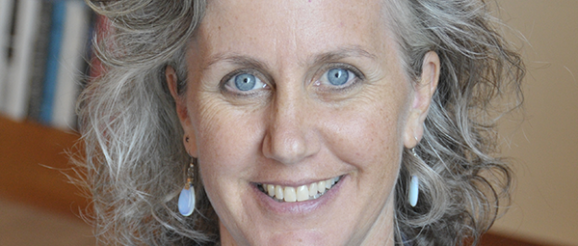Former Washington state bar leader remembered as a champion for legal innovation

Paula Littlewood.
Paula Littlewood, a champion for legal industry innovation who led the Washington State Bar Association for more than a decade, died of cancer Monday.
The 55-year-old mother of two was also closely involved with the ABA, having served on the ABA’s Commission on the Future of Legal Services from 2014 to 2016 and the ABA’s Task Force on the Future of Legal Education that issued a final report in 2014.
Littlewood became the Washington State Bar’s executive director in 2007 and was best known for her work in implementing the Limited License Legal Technicians initiative, approved by the state supreme court in 2012. The nonlawyer limited licensees, known as LLLTs, were permitted to handle some legal tasks within family law.
Littlewood traveled both nationally and internationally to speak about the LLLT initiative designed to strengthen access to justice, and other states have since launched or considered launching similar paraprofessional licensing schemes.
Washington Supreme Court Justice Barbara A. Madsen, who was the court’s chief justice when it adopted the limited license rule, called Littlewood a visionary who was “fully dedicated to her profession and the people we help, the public.”
“There were exciting things happening in the bar—we were opening windows and doors, trying to make justice the focus,” Madsen said in a statement Wednesday. “The world is going to be less interesting and emptier without her ideas, insights, energy and kindness.”
Frances Dujon-Reynolds, who served as the Washington bar’s director of human resources for roughly 14 years, wrote in a text message Tuesday that Littlewood was “an influencer and leader beyond belief.”
Steve Crossland, Littlewood’s longtime partner and chair of the LLLT board since its inception, often presented about the LLLT initiative with Littlewood. He said the two would share a saying with each other along the lines of, “This generation’s crazy idea is tomorrow’s common sense.”
“It gave us energy,” Crossland wrote in a text message Wednesday.
But despite the early acclaim for the LLLT initiative, the Washington Supreme Court voted earlier this year to sunset the program, citing cost concerns and an apparent lack of interest among the public in becoming LLLTs. The LLLT initiative also lost support from the Washington State Bar’s board, a shift that accelerated after Littlewood was forced out as the association’s executive director in 2019.
Nonetheless, Littlewood said earlier this year that she hoped the LLLT initiative would remain an inspiration to other states considering creating similar legal paraprofessional licenses.
“What we’ve always hoped—and what we used to talk to other states about—is that hopefully it shortens their curve to getting up and online with such a license because … at least they’ve got a model to start from,” Littlewood said during an episode of the ABA Journal’s Legal Rebels Podcast released in July. “We all know when you are writing something, it is easier to edit than to create.”
Even while battling pancreatic cancer, Littlewood found other perches from which to advocate for regulatory reform of the legal industry. She served on the board of Responsive Law and the board of advisers for the Institute for the Advancement of the American Legal System, known as the IAALS.
“Paula represents the best of the legal profession, and the very best of us,” the IAALS said in a blog post. “She was a champion for the profession to live up to its potential, to improve and innovate, and to address the access to justice crisis head on. Paula was instrumental in helping the IAALS chart our path toward reforming legal education and the delivery of legal services.”
Littlewood was also a strong proponent of bringing the public into the discussions about how to reform the legal profession, noting that lawyers have historically been very resistant to overhauling how the industry is regulated.
Additionally, she emphasized that the growing unmet legal needs among consumers should drive the ongoing regulatory overhaul efforts in several states.
“We need to break outside what I call the echo chamber of the profession and really start bringing the consumer and the public to the table to understand what changes could really enhance their ability to access legal services,” Littlewood said on the Legal Rebels podcast.
“There is time for incremental change, and there is time for bold change,” she added. “I think the time now is for bold change.”
